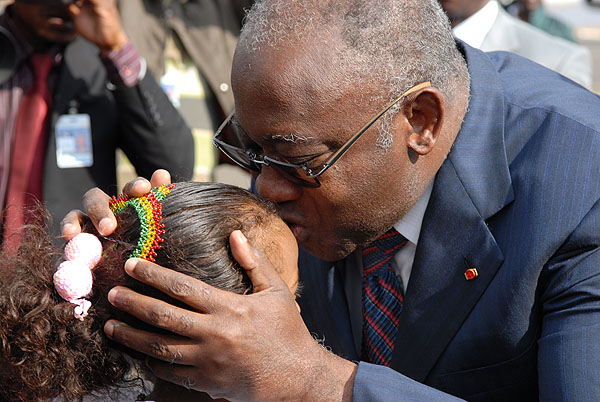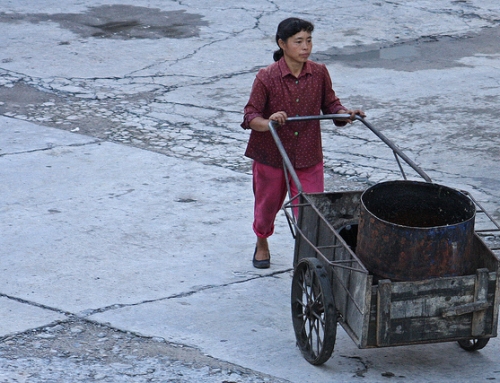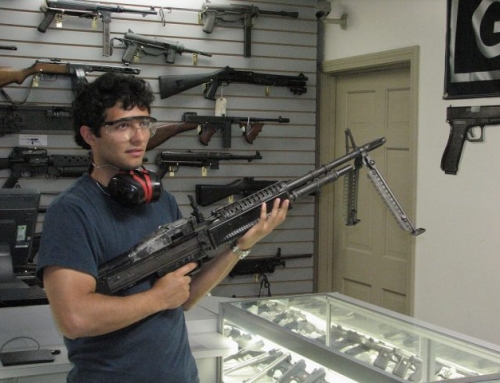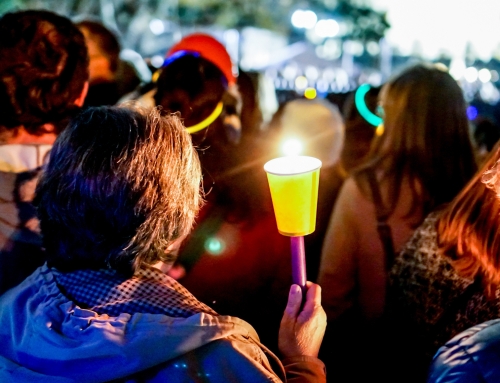
Laurent Gbagbo, former president of Ivory Coast, pleaded not guilty to four charges of crimes against humanity at the International Criminal Court (ICC) on Jan. 28, 2016. Gbagbo was charged with murder, rape, persecution, and other inhumane acts allegedly committed by his supporters during the 2010 presidential election standoff with the incumbent, President Alassane Quattara. His arraignment before the ICC marked him as the first former head of state to be tried at The Hague for the “worst crimes” against humanity. However, some observers have argued that Gbagbo’s trial reignite the debate of whether the ICC is inappropriately targeting African leaders while turning a blind eye to “atrocities” committed in the Middle East by the U.S. and its allies.
Gbagbo’s defense team has refuted the charges and labeled them a political conspiracy. In his opening address at Gbagbo’s trial, Attorney Emmanuel Altit said his client was not guilty and described the allegations as a “political narrative” intended to “justify the use of force against President Gbagbo.” Altit also stated that the French forces and mercenaries “forcibly” ousted a democratically elected president. He squarely lays the blame on Quattara and the French Government for the death of over 3,000 people during the disputed 2010 elections.
Does this suggest France intervened in its former colony’s affairs in an attempt to effect a regime change? This arguably sounds like the same narrative that has been a source of antagonism in the Middle East. If any similarities exist, it might be a fair suggestion that the ICC missed the opportunity to be a fair arbiter when it did not drag the U.S. and its allies before the court for the invasion of Iraq.
Mahmoud Cherif Bassiouni, distinguished research professor of Law at DePaul University, does not blame the ICC for being selective in Gbagbo’s trial. Contributing to the ICC Forum as the role of the court in Africa, Bassiouni noted that The Hague intervened after a “state referral” to investigate Gbagbo. In his words, “It was clearly the intention of Quattara to have his opponent investigated in order to strengthen his own position.”
Some media reports have also suggested that Quattara should have been indicted for his share of “crimes against humanity.” This is in light of the torture and killings which have been reported in the media, known as the Duekoue massacre, which resulted in the death of hundreds of civilians. According to the Human Rights Watch, the Quattara camp also committed “egregious abuses” during the standoff and failure by the ICC to investigate Quattara due to “budget constraints” can be seen by many critics as a lame excuse premised on selective justice. To some, this glaring miss by The Hague is arguably why the Gbagbo trial has been viewed as another example of how the ICC has selectively targeted African leaders.
Courtenay Griffiths, who represented former Liberian President Charles Taylor before the Special Court for Sierra Leone, roundly criticized the ICC for its double standards. He labeled The Hague as a “21st Century form of neocolonialism” funded by European sponsors who wish to “exert their powers and influence in Africa.” In 2011, the former chairman of the Africa Union, Jean Ping, took a swipe at the court for being selective after the indictment of the late Libyan leader, Muammar Qaddafi. He went as far as asking why “countries, like Myanmar,” have not been investigated by The Hague. In light of the Gbagbo trial, the same question can be asked–Is the ICC targeting African leaders?
All these discordant voices should, however, not sway the court from its ultimate goal. The enactment of the Rome Statute in 2002 founded the ICC, a brainchild of the United Nations mooted in 1948. Its primary objective remains the prosecution of “crimes of gravest concern to the international community as a whole.” Koffi Annan, former secretary-general of United Nations, applauded the creation of the court as a “historic response” aimed at punishing people responsible for heinous crimes, such as genocide. To this end, the indictment of Africa’s strongmen in the form of Gbagbo and others of his stature should sound a warning to the world leaders that they cannot rule with impunity.
World leaders must not be seen as sacred cows who are beyond reproach. The ICC should use its unprecedented jurisdictional reach when leaders hide behind the façade of inviolability of head of state. No amount of privilege can whitewash heinous crimes committed under their watch. Even African brotherhood should be frowned upon if it deters the ICC from prosecuting leaders who have total disregard of sacred human life.
Opinion by Shepherd Mutsvara
Edited by Leigh Haugh
Sources:
Africa Times: ICC: Laurent Gbagbo Pleads “Not Guilty”
ICCForum.com: Africa Debate – Is the ICC Targeting Africa Inappropriately?
Image Courtesy of United Nations’ Flickr Page – Creative Commons License





![Adolf Hitler and Donald Trump Similarities Will Lead to What Outcome? [Update]](https://futurepreviews.com/wp-content/uploads/2017/01/Screen-Shot-2017-01-12-at-7.29.12-PM-500x383.png)
